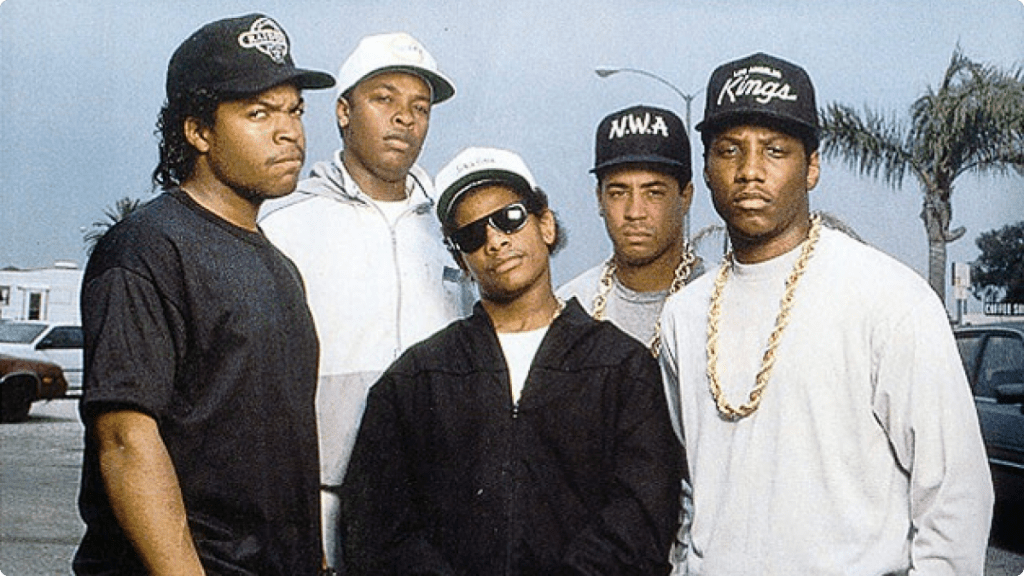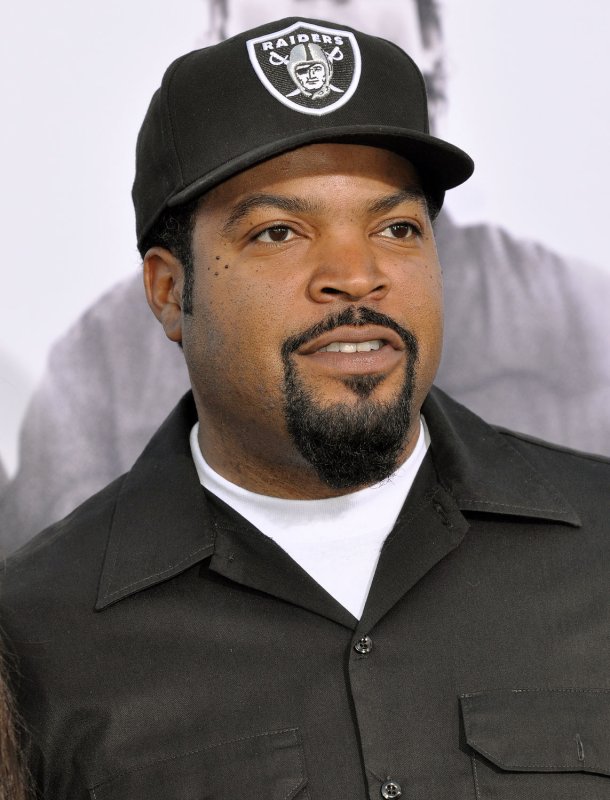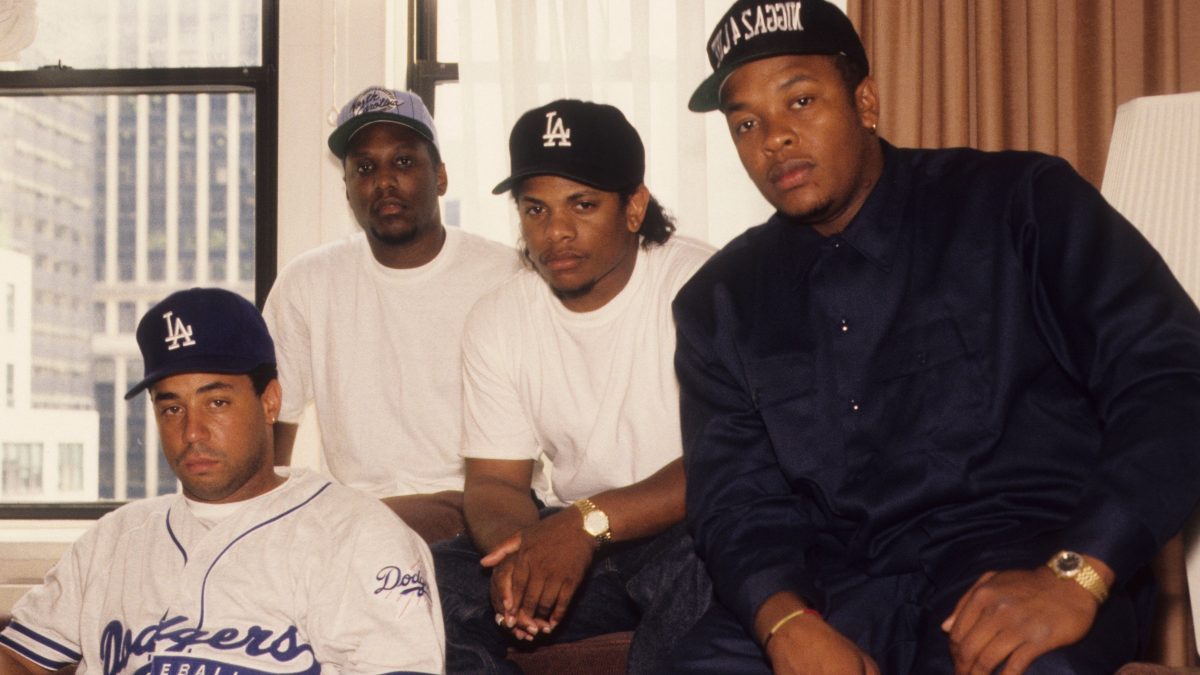The Untold Story Behind Ice Cube's Departure From N.W.A.
"Did Ice Cube leave N.W.A?" refers to the departure of O'Shea Jackson, better known by his stage name Ice Cube, from the pioneering gangsta rap group N.W.A. in 1989. N.W.A. was formed in Compton, California in 1986 and quickly gained notoriety for their explicit and confrontational lyrics. Ice Cube was a key member of the group, contributing to their landmark album "Straight Outta Compton" (1988), before leaving due to financial and creative differences.
Ice Cube's departure from N.W.A. was a significant moment in hip-hop history, marking the end of one of the most influential rap groups of all time. It also paved the way for Ice Cube's successful solo career, which saw him become one of the most respected and acclaimed rappers in the industry. His departure from N.W.A. also highlighted the tensions and challenges within the group, which would ultimately lead to its dissolution in 1991.
In the years since his departure from N.W.A., Ice Cube has continued to be a major figure in hip-hop and popular culture. He has released numerous successful solo albums, starred in several films and television shows, and founded his own record label and production company. His legacy as a member of N.W.A. and as a solo artist continues to inspire and influence artists and fans around the world.
Did Ice Cube Leave N.W.A?
The departure of Ice Cube from the pioneering gangsta rap group N.W.A. in 1989 was a significant moment in hip-hop history. Here are 9 key aspects to consider:
- Creative Differences: Ice Cube felt that he was not receiving a fair share of the group's profits and that his creative vision was being stifled.
- Financial Disputes: Ice Cube believed that he was being underpaid and that the group's finances were not being managed properly.
- Solo Ambitions: Ice Cube had already begun to pursue a solo career and felt that he could be more successful on his own.
- Group Dynamics: N.W.A. was a volatile group with a lot of internal conflict. Ice Cube's departure was the result of years of simmering tensions.
- Legal Issues: Ice Cube was facing legal problems at the time of his departure, which may have influenced his decision to leave the group.
- Influence of Suge Knight: Suge Knight, the founder of Death Row Records, played a role in Ice Cube's departure from N.W.A.
- Legacy: Ice Cube's departure from N.W.A. marked the end of one of the most influential rap groups of all time.
- Solo Success: Ice Cube went on to have a successful solo career, releasing several platinum-selling albums and starring in numerous films.
- Reunion: N.W.A. reunited in 1995 for a one-off performance at the MTV Video Music Awards.
These are just some of the key aspects to consider when discussing Ice Cube's departure from N.W.A. It was a complex and multifaceted event that had a significant impact on the history of hip-hop.
Creative Differences
Creative differences were a major factor in Ice Cube's departure from N.W.A. He felt that he was not being compensated fairly for his contributions to the group and that his creative ideas were not being respected.
- Financial Disputes: Ice Cube felt that he was not receiving a fair share of the group's profits. He believed that his contributions to the group's success were not being recognized financially.
- Artistic Control: Ice Cube felt that his creative vision was being stifled within the group. He wanted to have more control over the group's music and image, but he felt that his ideas were being overruled by the other members.
- Solo Ambitions: Ice Cube had already begun to pursue a solo career and felt that he could be more successful on his own. He believed that he could have more creative freedom and control over his career if he left the group.
These creative differences eventually led to Ice Cube's departure from N.W.A. in 1989. He went on to have a successful solo career, releasing several platinum-selling albums and starring in numerous films. N.W.A. continued for a few more years without Ice Cube, but they eventually disbanded in 1991.
Financial Disputes
Financial disputes were a major factor in Ice Cube's departure from N.W.A. He felt that he was not being compensated fairly for his contributions to the group and that the group's finances were not being managed properly.
- Unfair Compensation: Ice Cube felt that he was not receiving a fair share of the group's profits. He believed that his contributions to the group's success were not being recognized financially.
- Financial mismanagement: Ice Cube believed that the group's finances were not being managed properly. He alleged that there was financial mismanagement and that money was being misappropriated.
- Lack of transparency: Ice Cube felt that there was a lack of transparency in the group's financial dealings. He was not given access to the group's financial records and was not able to verify how the money was being spent.
- Legal action: Ice Cube eventually filed a lawsuit against N.W.A. for unpaid royalties and breach of contract.
These financial disputes eventually led to Ice Cube's departure from N.W.A. in 1989. He went on to have a successful solo career, releasing several platinum-selling albums and starring in numerous films. N.W.A. continued for a few more years without Ice Cube, but they eventually disbanded in 1991.
Solo Ambitions
Ice Cube's decision to leave N.W.A. was influenced by his solo ambitions. He believed that he had the potential to be a successful solo artist and that he could achieve greater success outside of the group.
- Creative Control: As a solo artist, Ice Cube would have complete creative control over his music and image. He would not have to compromise his artistic vision to fit the group's sound or image.
- Financial Success: Ice Cube believed that he could earn more money as a solo artist than he could as a member of N.W.A. He would not have to share his profits with other members of the group.
- Personal Growth: Ice Cube felt that he needed to leave N.W.A. in order to grow as an artist. He wanted to challenge himself and explore new creative possibilities.
Ice Cube's solo career has been very successful. He has released several platinum-selling albums and has starred in numerous films. He is considered to be one of the most successful and influential rappers of all time.
Group Dynamics
The internal dynamics of N.W.A. played a significant role in Ice Cube's decision to leave the group. N.W.A. was a volatile group with a lot of internal conflict. The members had different personalities and creative visions, and they often clashed with each other. Ice Cube was particularly outspoken and confrontational, and he frequently clashed with the other members of the group, especially Eazy-E.
In addition to the creative tensions, there were also financial disputes within the group. Ice Cube felt that he was not being compensated fairly for his contributions to the group, and he was also concerned about the group's financial management. These financial disputes further strained the relationships within the group and contributed to Ice Cube's decision to leave.
The internal conflict within N.W.A. reached a boiling point in 1989, when Ice Cube left the group. His departure was a major blow to the group, and it ultimately led to their in 1991.
The group dynamics within N.W.A. are a cautionary tale about the importance of communication and teamwork. When members of a group are unable to resolve their conflicts and work together effectively, it can lead to the group's downfall.
Legal Issues
Ice Cube was facing several legal problems at the time of his departure from N.W.A., including charges of assault and battery. These legal problems may have influenced his decision to leave the group, as he may have been concerned about the impact that his legal troubles could have on the group's image and success.
It is also possible that Ice Cube's legal problems contributed to the internal conflict within N.W.A. The other members of the group may have been concerned about the legal risks associated with having Ice Cube as a member, and this may have led to tension and disagreements within the group.
Ultimately, it is difficult to say for sure whether or not Ice Cube's legal problems were the main reason for his departure from N.W.A. However, it is clear that his legal troubles were a significant factor in his decision to leave the group.
Influence of Suge Knight
Suge Knight, the founder of Death Row Records, played a significant role in Ice Cube's departure from N.W.A. Knight was a powerful figure in the music industry, and he was interested in signing Ice Cube to his label. He offered Ice Cube a lucrative contract, and he also promised to help him with his legal problems.
Ice Cube was tempted by Knight's offer, and he eventually decided to leave N.W.A. and sign with Death Row Records. His departure was a major blow to N.W.A., and it ultimately led to the group's disbandment in 1991.
Knight's influence on Ice Cube's departure from N.W.A. is a reminder of the power that record executives have over artists. Knight was able to use his financial resources and his connections to the music industry to lure Ice Cube away from N.W.A. This shows that record executives can play a significant role in the careers of artists, and that they can sometimes influence the direction of music history.
Legacy
The connection between "Legacy: Ice Cube's departure from N.W.A. marked the end of one of the most influential rap groups of all time." and "did ice cube leave nwa" is significant. Ice Cube's departure from N.W.A. was a major turning point in the history of hip-hop. N.W.A. was one of the most influential and successful rap groups of all time, and their music had a profound impact on the genre. Ice Cube's departure marked the end of an era for N.W.A. and for hip-hop as a whole.
Ice Cube's departure from N.W.A. was caused by a number of factors, including creative differences, financial disputes, and personal conflicts. However, his departure had a significant impact on the group's legacy. Without Ice Cube, N.W.A. was never able to recapture the same level of success. The group disbanded in 1991, and its members went on to pursue solo careers.
Ice Cube's departure from N.W.A. is a reminder of the importance of legacy. N.W.A. was a groundbreaking group that helped to shape the sound of hip-hop. Their music continues to influence artists and fans around the world. Ice Cube's departure marked the end of an era for N.W.A., but their legacy continues to live on.
Solo Success
Ice Cube's departure from N.W.A. marked the beginning of a successful solo career. He released his debut solo album, "AmeriKKKa's Most Wanted", in 1990. The album was a critical and commercial success, and it helped to establish Ice Cube as a solo artist. He went on to release several more platinum-selling albums, including "Death Certificate" (1991), "The Predator" (1992), and "Lethal Injection" (1993).
In addition to his music career, Ice Cube also began acting in films. He starred in the films "Boyz n the Hood" (1991), "Trespass" (1992), and "Friday" (1995). These films were all critical and commercial successes, and they helped to make Ice Cube a household name.
Ice Cube's solo success is a testament to his talent and determination. He was able to overcome the challenges of leaving N.W.A. and go on to have a successful career as a solo artist. His success is an inspiration to other artists who are looking to leave their groups and pursue solo careers.
Reunion
After Ice Cube left N.W.A. in 1989, the iconic rap group did not perform together for many years. However, in 1995, they reunited for a one-off performance at the MTV Video Music Awards. The performance was a major event in hip-hop history, and it helped to solidify N.W.A.'s legacy as one of the most influential rap groups of all time.
- Healing of Rifts: The reunion performance was a sign that the members of N.W.A. had finally healed the rifts that had led to Ice Cube's departure. The performance showed that the group was able to put their differences aside and come together for a special occasion.
- Nostalgia: The reunion performance was also a nostalgic moment for fans of N.W.A. It gave fans a chance to see the group perform together one last time and to relive the glory days of the group.
- Influence on Future Reunions: The N.W.A. reunion performance has influenced other hip-hop groups to reunite. For example, Wu-Tang Clan reunited in 1999, and Outkast reunited in 2014.
- Cultural Impact: The N.W.A. reunion performance was a major cultural event. It showed that hip-hop was a powerful force that could bring people together and heal old wounds.
The N.W.A. reunion performance was a significant event in hip-hop history. It showed that the group was able to overcome their differences and come together for a special occasion. The performance also had a major cultural impact, and it helped to solidify N.W.A.'s legacy as one of the most influential rap groups of all time.
FAQs on "Did Ice Cube Leave N.W.A.?"
This section addresses common questions and misconceptions surrounding Ice Cube's departure from the influential rap group N.W.A.
Question 1: What were the primary reasons behind Ice Cube's departure from N.W.A.?
Ice Cube left N.W.A. due to a combination of factors, including creative differences, financial disputes, and personal conflicts with other group members, particularly Eazy-E.
Question 2: How did Ice Cube's departure impact N.W.A.?
Ice Cube's departure was a major blow to N.W.A., both creatively and commercially. The group struggled to maintain its momentum without his lyrical prowess and confrontational style, and disbanded just two years later.
Question 3: Was Ice Cube's departure amicable?
No, Ice Cube's departure from N.W.A. was not amicable. He left the group on bad terms with several members, particularly Eazy-E, and their feud continued for several years.
Question 4: How did Ice Cube's solo career fare after leaving N.W.A.?
Ice Cube's solo career flourished after his departure from N.W.A. He released several platinum-selling albums and starred in numerous successful films, establishing himself as one of the most influential and successful rappers of all time.
Question 5: Did N.W.A. ever reunite after Ice Cube's departure?
Yes, N.W.A. reunited for a one-off performance at the 1995 MTV Video Music Awards. However, the reunion was short-lived, and the group has not performed together since.
Question 6: What is Ice Cube's legacy within the hip-hop community?
Ice Cube is widely regarded as one of the most influential and respected figures in hip-hop. His lyrics, which often addressed social and political issues, helped shape the genre's consciousness and earned him a reputation as a voice for the disenfranchised.
In conclusion, Ice Cube's departure from N.W.A. was a significant event in hip-hop history. It marked the end of one of the most influential rap groups of all time and paved the way for Ice Cube's successful solo career.
Transition to the next article section:
Tips for Understanding "Did Ice Cube Leave N.W.A.?"
To gain a deeper understanding of the significance of Ice Cube's departure from N.W.A., consider the following tips:
Tip 1: Examine the Creative and Financial Differences: Explore the creative tensions and financial disputes that led to Ice Cube's dissatisfaction within the group.
Tip 2: Analyze the Group Dynamics: Study the interpersonal relationships and conflicts among N.W.A. members, particularly between Ice Cube and Eazy-E, to understand the underlying tensions.
Tip 3: Consider the Impact on N.W.A.'s Legacy: Evaluate how Ice Cube's departure affected the group's creative output, commercial success, and overall legacy in the hip-hop industry.
Tip 4: Trace Ice Cube's Solo Success: Follow Ice Cube's trajectory after leaving N.W.A., examining the evolution of his musical style, album releases, and impact on the rap genre.
Tip 5: Explore the Significance of the Reunion: Analyze the circumstances and motivations behind N.W.A.'s one-off reunion performance in 1995, considering its impact on the group's legacy and the dynamics between its members.
Tip 6: Understand the Historical Context: Place Ice Cube's departure from N.W.A. within the broader context of hip-hop's development in the late 1980s and early 1990s.
Tip 7: Examine Cultural Impact: Assess the cultural significance of Ice Cube's lyrics and activism, exploring how his work addressed social and political issues and influenced broader societal discourse.
Tip 8: Appreciate the Enduring Legacy: Recognize the lasting impact of Ice Cube's contributions to hip-hop, both as a member of N.W.A. and as a successful solo artist.
These tips provide a framework for a comprehensive understanding of Ice Cube's departure from N.W.A. and its implications for the hip-hop genre and beyond.
Transition to the article's conclusion:
Conclusion on "Did Ice Cube Leave N.W.A.?"
Ice Cube's departure from N.W.A. stands as a pivotal moment in hip-hop history, marking the end of one of the genre's most influential groups and paving the way for a new era of solo artistry. His decision to leave was driven by a complex interplay of creative differences, financial disputes, and internal conflicts, highlighting the challenges and complexities of group dynamics.
Ice Cube's subsequent solo success demonstrated his artistic vision and lyrical prowess, solidifying his status as one of hip-hop's most respected and influential figures. His departure from N.W.A. not only reshaped the group's trajectory but also influenced the broader landscape of the genre, inspiring other artists to pursue solo endeavors and empowering voices that challenged the status quo.
Uncovering The Journey: Christine Tran Ferguson's Son's Inspiring Transition
Unveiling Adam Shulman: Uncovering The Journey Of A Versatile Artist
Saffie Khan: A Beacon Of Hope And Inspiration

アイス・キューブ(Ice Cube)、N.W.A.の活躍をダビデとゴリアテの戦いに例えて語る ILLEGAL ASSEMBLY of

N.W.A. not performing at Rock & Roll Hall of Fame induction

Dr. Dre Refutes N.W.A's 'Gangsta Rap' Label 'I've Never Liked It Being
ncG1vNJzZmirp5qytbbApmWsa16qwG7DxKyrZmpelrqixs6nmLCrXpi8rnvDoptmoZOaeqTBwZ5kpZ2Rq7JuutaaZaGsnaE%3D